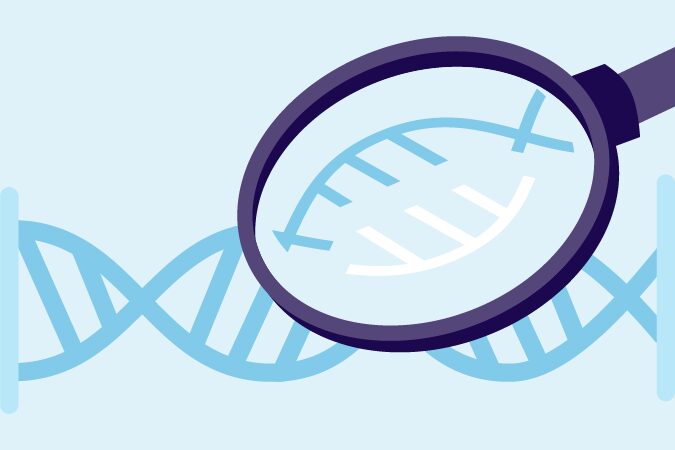Family history, genes and cancer
Only about 5–10% of cancer cases result from specific inherited gene mutations, such as BRCA1 and BRCA2.

On this page
If several members of your family have been diagnosed with cancer, you might be concerned that cancer runs in your family. While inheriting certain gene mutations can increase the risk of developing some cancers, only 5–10% of cancer cases are caused by genetic mutations.
Even if you do carry a faulty gene, it doesn’t mean you will definitely develop cancer, as how you live and environmental factors also influence your overall risk.
You can reduce your risk of developing many types of cancer by:
It’s also important to remember that 1 in 2 people will develop cancer in their lifetime, and cancer is a common disease among people aged 70 years or older.
BRCA1 and BRCA2
Everyone has BRCA1 and BRCA2 genes. Sometimes, these genes carry a fault, which can increase the risk of:
- breast cancer (the risk is about 70 per cent higher)
- ovarian cancer (the risk is about 45 per cent higher)
- prostate and pancreatic cancer. Although carrying the faulty gene increases the risk of prostate and pancreatic cancer, it’s not to the same extent as breast and ovarian cancers.
This mutation is relatively rare – about 1 in every 400 individuals carry a mutated version of BRAC 1 or BRAC2.
Lynch syndrome
Lynch syndrome is a condition caused by a faulty gene. People with Lynch syndrome have a higher risk of bowel cancer, and often at a younger age. They are also at increased risk of rectal, womb and ovarian cancers.
If you have a family history of cancer or are concerned that you may have inherited genes that increase your cancer risk, it’s important to talk to your doctor.
Height and birthweight
Height and birthweight are influenced by your genes. Research shows that taller adults and people who were heavier at birth have a higher risk of certain cancers. However, these factors themselves aren’t something you can change.
Scientists believe that birthweight and height reflect other influences, like exposure to hormones during childhood growth, rather than directly causing cancer. Once you’re an adult, there’s no way to change these childhood factors.
For scientists
We fund research projects that look at how genetic factors interplay with diet, weight and physical activity to affect the risk of developing cancer.
Diet and Cancer Report
Our 2018 Diet and Cancer Report looked at height and birthweight.
It found strong evidence that:
- developmental factors leading to greater growth in length in childhood (marked by adult attained height) INCREASE the risk of cancers of the following types: pancreas, colorectum, endometrium, ovary, prostate, kidney, skin (malignant melanoma) and breast (pre and postmenopause).
- factors that lead to a greater birthweight, or its consequences, INCREASE the risk of premenopausal breast cancer.
> Read the relevant chapter in our science and policy library